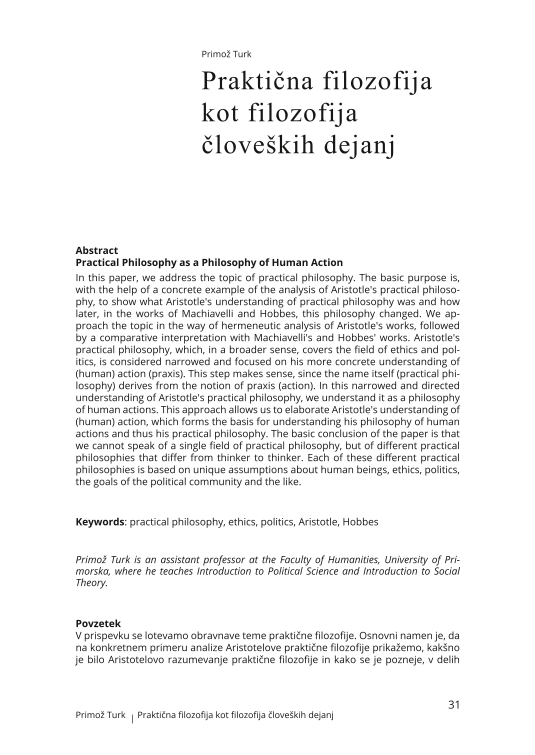In this paper, we address the topic of practical philosophy. The basic purpose is, with the help of a concrete example of the analysis of Aristotle's practical philosophy, to show what Aristotle's understanding of practical philosophy was and how later, in the works of Machiavelli and Hobbes, this philosophy changed. We approach the topic in the way of hermeneutic analysis of Aristotle's works, followed by a comparative interpretation with Machiavelli's and Hobbes' works. Aristotle's practical philosophy, which, in a broader sense, covers the field of ethics and politics, is considered narrowed and focused on his more concrete understanding of (human) action (praxis). This step makes sense, since the name itself (practical philosophy) derives from the notion of praxis (action). In this narrowed and directed understanding of Aristotle's practical philosophy, we understand it as a philosophy of human actions. This approach allows us to elaborate Aristotle's understanding of (human) action, which forms the basis for understanding his philosophy of human actions and thus his practical philosophy. The basic conclusion of the paper is that we cannot speak of a single field of practical philosophy, but of different practical philosophies that differ from thinker to thinker. Each of these different practical philosophies is based on unique assumptions about human beings, ethics, politics, the goals of the political community and the like.




